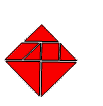4002-425-02
HCI1: Human Factors
Winter 20052 Course Syllabus
The information presented in this syllabus is subject to expansion, change, or adjustment during the quarter.
Instructor:
Name: Christopher A. Egert
Office: Bldg. 70, Room 2515
475 - 4873
cae (*at*) it.rit.edu (or through FirstClass)
Office Hours:
Tuesday 9:30AM-11:30AM
Tuesday 4:00PM-6:00PM
and by appointment
Teaching Assistant:
T.B.A.
Course Web Page:
http://www.it.rit.edu/~cae/courses/20052/425/index.html
FirstClass Conference:
Egert_425-02
Course Text and Materials
• Required text: Design of Everyday Things., Donald Norman, Basic Press, 2002.
• Required text: Essential Cognitive Psychology., Alan J. Parkin, Taylor and Francis Group, 2000.
• Additional readings will be provided as handouts or web URLS.
Important RIT Deadlines
Last day of add/drop is Monday, December 5, 2005. Last day to withdraw with a grade of "W" is Friday, January 27, 2006.The deadline for withdrawing from a course with a W grade is the end of the 6th week of the quarter. Forms may be obtained from your department office and need your instructor's signature. The completed forms should be returned no later than January 27, 2006.
NOTE: IT department policy states that a student has one quarter to challenge any grade. After that, grades cannot be challenged
Course Description
Human Computer Interaction (HCI) is a multidisciplinary field of study concerned with how humans interact with software and hardware interfaces. This course will focus on theories of human information processing, human behavior and their implications for user-centered design of interfaces. Topics include: HCI history, cognitive psychology, user analysis, task analysis, and requirements analysis in the usability engineering process.
Prerequisite Courses
None, however 2nd year standing is required in IT.
Course Goals and Objectives
General Course Goals
To provide the student with the foundations for understanding human behavior in
user tasks and in developing user interfaces.
By the end of the course, students should be able to:
• apply the principles of Cognitive Psychology to the design of usable interfaces
• analyze the usability of a consumer product interface
• develop user profiles
• apply appropriate task analysis methods
• brainstorm and model a usable design
• work effectively in a team environment
Course Organization
Paper
There will be a formal paper assigned in this class that will require the student to
identify and critique issues of design, usability, and human factors. The specifics
regarding this paper will be given later in the quarter. The paper is a major component
of the overall course grade.
Participation
As this is a course in Human Factors, it is important for students to develop the ability
to communicate and present ideas. As such, participation is taken very seriously in this
course and also constitutes a major portion of the overall grade.
Exam (Midterm)
There will be a midterm exam before the withdraw date. The exam will cover key concepts
regarding human factors. It is the student's responsibility to attend the exam. No makeup
exams will be given.
Assignments
The majority of the grade will be placed upon individual assignments scheduled throughout
the quarter. Students are responsible for checking the website and attending classes in
order to determine when assignments are distributed and when they are due.
Grading
For each day late, the maximum obtainable grade for a project or homework will be reduced
by a score equivalent to one letter grade. The due date and time will be clearly indicated
on every assignment.
Website
The course website is located off of my main web page at http://www.it.rit.edu/~cae.
This web site has relevant information for this section of the course.
FirstClass
You are required to have a FirstClass account for course communications and for submission
of those assignments that must be submitted as files to our FirstClass drop box. Please note
that you can install a FirstClass client on your own PC that requires an Internet connection.
Alternately, you can connect to the system in a web browser. The URL is firstclass.it.rit.edu/login
Course Topics
-
What is HCI
- history
- as a multidisciplinary field
-
The Usability Engineering Lifecycle
- as an iterative process
- analysis, design, prototyping, and testing phases
-
User Analysis
- user classes
- user characteristics
- user limitations
- implications for design
-
Introduction to Cognitive Psychology
- perception
- attention
- problem solving
- thinking
- memory
- implications for design
-
Task Analysis
- current work environment
- hierarchical
- knowledge based
- entity-relationship
- task scenarios
- implications for design
-
Conceptual design
- moving from analysis to design
- brainstorming
- design scenarios
Grading
The grading scale used along with the grading criteria is as follows:
| Component | Weight |
|---|---|
| Paper | 20 |
| Exam (Midterm) | 20 |
| Participation | 10 |
| Assignments | 50 |
| Range | Grade |
|---|---|
| >= 90.0% | A |
| >= 80.0% & < 90% | B |
| >= 70.0 % & < 80.0% | C |
| >= 65.0 % & < 70.0% | D |
| < 65.0% | F |
Course Schedule (Approximate - will change throughout the quarter!)
The schedule for this course will be maintained on the 425 web site. For the first week, the scheduled readings will be announced in class.
Cheating
Academic dishonesty is misrepresenting someone else's work as your own. Academic dishonesty is a serious matter, and can result in an automatic F for the course. Please review the IT department's policy on cheating, located online at http://www.it.rit.edu/policies/dishonesty.html.
If, during the quarter, you ever have any questions about what does or does not constitute academic dishonesty, please come and talk to me.
Finally...
Any or all of the previous information is subject to change or adjustment during the quarter.

 by
by 












